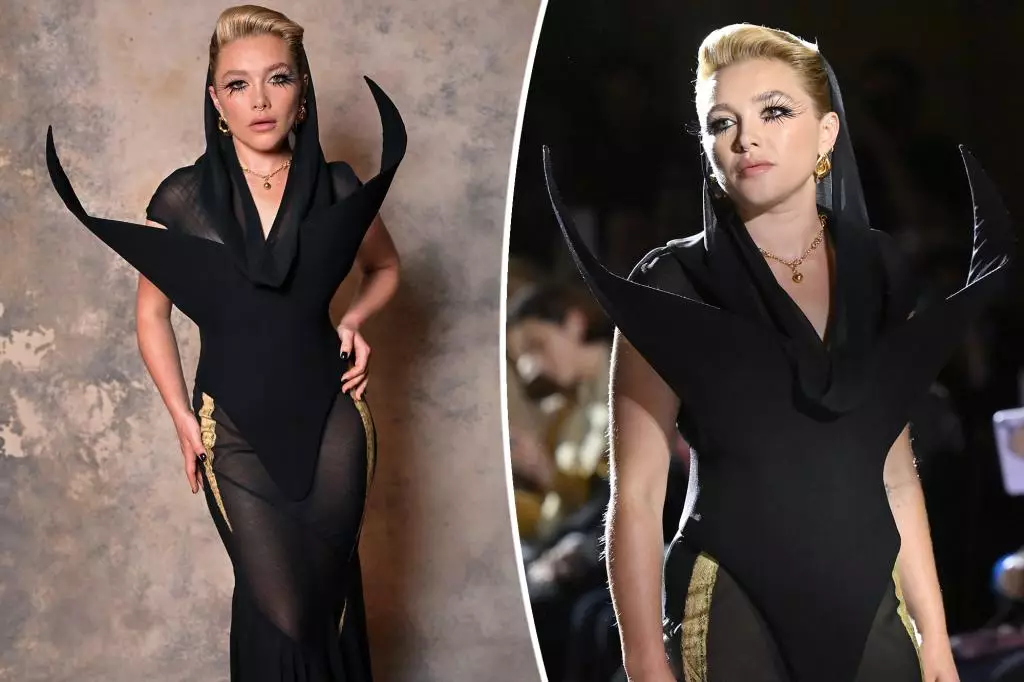Florence Pugh has once again captivated audiences, this time in the world of high fashion. The 29-year-old actress made her modeling debut at London Fashion Week, radiating charisma and intrigue while showcasing an avant-garde creation by designer Harris Reed. Pugh’s black sheer sculptural dress was more than a mere outfit; it was a striking statement piece that echoed the designer’s unique aesthetic. The dress featured dual horn-like details that elegantly framed her face, cloaked with a hood that added an air of mystery and gothic allure.
Pugh’s appearance was not just a conventional modeling gig but also a profound performance art moment. Opening the Harris Reed fall 2025 show at the renowned Tate Britain, she delivered a haunting monologue that complemented a live performance by a cellist covering Metallica. This fusion of fashion and performance art invites audiences to rethink the boundaries of both industries. The monologue encapsulated themes of discomfort—a sentiment that Reed strives for in his designs. His perspective, that discomfort can prompt introspection and inquiry, resonates deeply, challenging viewers to reflect on their perceptions and societal norms.
The synergy between Pugh and Reed is palpable and speaks volumes about the evolving nature of celebrity and fashion. Their established friendship has cultivated a space where Pugh can flourish as both an actress and a muse. Advocating for clothing’s transformative power, Pugh once stated, “The art of dressing up allows us to express who we truly are,” emphasizing the notion that fashion can offer a safe haven amidst a judgmental society. This endorsement of self-expression highlights how personal style plays a crucial role in one’s identity and the narratives we choose to present to the world.
By embodying a character rooted in folklore—a representation of unease and eeriness—Pugh and Reed encourage a deeper understanding of beauty that transcends conventional standards. Fashion should not merely conform to societal expectations but should also evoke feelings and provoke thought. This show tasked the audience with sitting in their discomfort, signaling that true artistry in fashion lies in its ability to inspire reflection and dialogue.
As Florence Pugh continues to bridge the gap between acting and modeling, her endeavors signal a promising future for performance-centric fashion. Her ability to mix narrative and style offers a refreshing perspective that places significance on both the clothing and the stories behind it. With designers like Harris Reed dedicated to capturing emotional and psychological depth through fabric, the fashion world is poised for an evolution, where each runway show can become a multifaceted experience.
Florence Pugh’s debut on the runway is not just a reflection of her talents but a testament to the transformative potential of fashion. As she paves the way for a new generation of artists, one can only wonder what profound statements will be made in future fashion shows that prioritize both style and substance.

